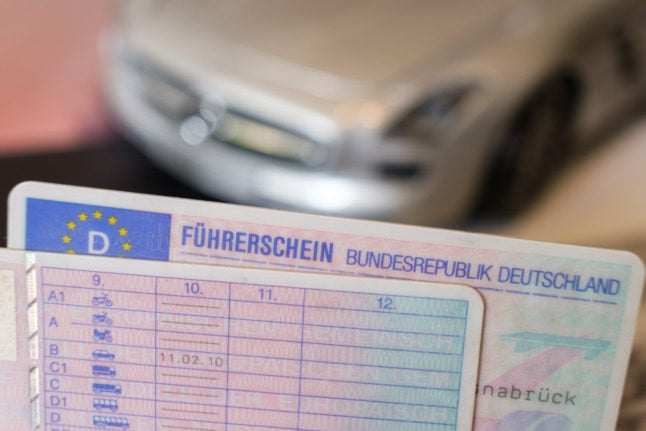The court in Würzburg, Bavaria, found the 58-year-old man guilty of four attempted murders, grievous bodily harm and dangerous conduct on the road.
Michael Harry K. had been facing five charges of attempted murder in a trial which began in August after his arrest in June 2013.
Since confessing to the attacks at the time of his arrest, the court had been expected to hand down a lengthy prison sentence.
Prosecutors demanded that he be imprisoned for 12 years, while the defence argued that he should be freed, arguing the methods used to catch him were illegal.
He began his shooting spree in 2009 at the latest and carried on uncaught for almost five years.
Detectives were finally able to arrest the man, originally from the Eifel region on the Belgian border, by recording the number plates of passing vehicles on seven different stretches of motorway.
Two weapons and hundreds of rounds of ammunition were found in the trailer of his truck when police searched it.
The five attempted murder counts were just part of 171 charges. Investigators believe that he fired around 700 times altogether, but were not able to charge him for all of them.
Hand-made guns
A capable gunsmith, the trucker had built one of his pistols himself, as well as putting together silencers for both firearms and creating his own ammunition in his workshop.
The weapons were hidden in the airbag pocket of his steering wheel when he was preparing to fire on other road users, the court heard.
He responded enthusiastically to the presiding judge's questions about his hobby, saying that his workshop was his sacred space where no-one else was allowed.
But he denied the accusations that he gambled with other people's lives, saying that he only ever fired at other trucks' cargo, especially cars being hauled on transporters.

That was small comfort to a woman, one of three people wounded by the gunman, who was badly hurt when he shot her in the throat, causing her to crash her car on the motorway.
She refused to accept his apology when he said he “wished he could take it back.”
Repressed rage
Many of the trucker's colleagues were astounded to learn that he was behind the apparently random shootings, as he rarely made any sign of his pent-up anger.
“I have serious difficulty putting the two pictures together,” his boss told the court in September, saying that the trucker had been a reliable and helpful worker.
But in fact he was enraged by the way other truckers drove, clashes with car transporter drivers and rest stops with no free parking spaces. He wanted to “teach a lesson” to the people who had angered him, the court heard.
He had referred to a “trucking war on German motorways” in questioning by the police, the presiding judge said at the beginning of the trial.
When questioned by judges about his motives, he said: "My behaviour is no longer comprehensible to me."



 Please whitelist us to continue reading.
Please whitelist us to continue reading.
Member comments